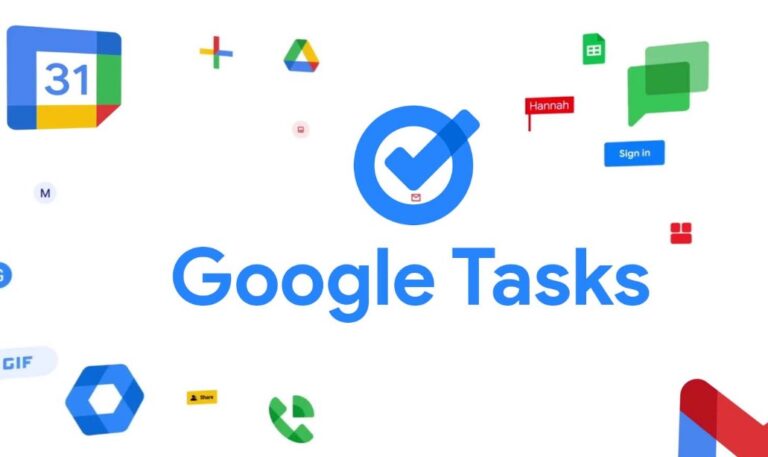What is a Cloud Engineer? Understanding the Role, Benefits, and Best Tools for Cloud Success
In today’s digital economy, cloud computing has become the backbone of innovation, allowing companies to scale, manage data efficiently, and ensure robust infrastructure. A Cloud Engineer plays a pivotal role in this transformation by designing, implementing, and managing cloud environments that support an organization’s digital infrastructure. With the right tools, Cloud Engineers can ensure secure, efficient, and scalable systems, enabling businesses to thrive in a competitive marketplace. This article provides an in-depth look into the Cloud Engineer’s responsibilities, the benefits of cloud engineering, and a review of the top products that support their work.
The Role of a Cloud Engineer

Cloud Architect
Cloud Architects are responsible for designing the overall cloud strategy, ensuring that the infrastructure aligns with an organization’s business objectives. They create architecture plans, select appropriate cloud providers, and design systems that meet scalability, security, and performance standards. The Cloud Architects often collaborate with developers and system administrators to implement solutions effectively, ensuring that the infrastructure is robust and adaptable to future needs.
Cloud Security Engineer
Cloud Security Engineers focus on protecting data and cloud systems from security threats. They implement security protocols, monitor for potential risks, and ensure compliance with industry standards. Working closely with other cloud team members, they secure applications and data through advanced encryption, access management, and threat detection techniques. This role is essential for industries handling sensitive information, like healthcare and finance, where data security is paramount.
Cloud Developer
Cloud Developers specialize in designing and building applications optimized for cloud environments. They use cloud-native technologies such as microservices, containerization, and serverless computing to ensure applications are scalable and resilient. Cloud Developers collaborate with other engineers to make sure applications align with the infrastructure designed by Cloud Architects. They also monitor performance and improve cloud-based applications over time, ensuring they meet user and business demands effectively.
Cloud Operations Engineer (SysOps)
Cloud Operations Engineers, also known as SysOps Engineers, manage the day-to-day operations of cloud systems. They monitor performance, manage updates, troubleshoot issues, and ensure all systems run smoothly. SysOps Engineers are also involved in capacity planning, scaling, and resource optimization to reduce operational costs. Their expertise is vital for maintaining reliable and efficient cloud operations, ensuring the infrastructure remains accessible and performing well.
DevOps Cloud Engineer
DevOps Cloud Engineers play a critical role in bridging development and operations, promoting a collaborative and automated environment. They focus on continuous integration and continuous deployment (CI/CD) practices, which allow for rapid, reliable software updates and fixes. DevOps Cloud Engineers use automation tools to streamline development pipelines, improve efficiency, and accelerate delivery times for cloud-based applications, making them more responsive to business needs and user feedback.
How Cloud Engineering Works?

Here’s a breakdown of how cloud engineering works, presented in key points:
- Scalable Infrastructure
- Cloud engineering utilizes scalable, on-demand computing resources, allowing organizations to transition from traditional on-site data centers to flexible cloud environments.
- Engineers use Infrastructure as a Service (IaaS) to access virtual servers, storage, and networking, creating customized systems suited to organizational needs.
- Platform as a Service (PaaS) supports the development and management of applications without needing direct infrastructure management.
- Software as a Service (SaaS) provides ready-to-use applications accessible across devices, streamlining user access.
- Key Technologies: Virtualization and Containerization
- Virtualization enables multiple operating systems and applications to run on a single physical machine, optimizing resource usage.
- Containerization packages applications with all necessary dependencies, ensuring consistent performance across various environments.
- Together, these technologies allow for adaptable, scalable, and efficient system design.
- Security and Data Management
- Cloud Engineers implement robust security protocols, including encryption, access controls, and regular updates, to secure data in the cloud.
- They also manage data flow and storage, ensuring that data is accessible while remaining securely stored and compliant with regulations.
- Business Benefits
- Cloud engineering enables agility and cost-effectiveness by allowing companies to scale resources as needed.
- This flexibility allows organizations to focus on innovation and productivity rather than infrastructure management.
By combining these elements, cloud engineering supports modern businesses in creating robust, secure, and scalable cloud-based solutions tailored to their specific operational needs.
Key Features of Cloud Engineer

A Cloud Engineer plays a pivotal role in designing, implementing, and maintaining cloud-based infrastructure within an organization. Their expertise ensures that cloud environments are scalable, secure, and optimized for performance, supporting an organization’s digital strategy. Here are some essential features and responsibilities that define a Cloud Engineer:
1. Cloud Architecture and Infrastructure Design
One of the primary roles of a Cloud Engineer is to design robust cloud architectures tailored to the organization’s needs. This includes selecting the right mix of services for computing, storage, and networking while ensuring seamless integration with existing systems. A Cloud Engineer is proficient in creating scalable architectures that can accommodate growth without compromising performance or security.
2. System Automation and Efficiency
Automation is a key feature in cloud engineering, as it enhances efficiency and reduces operational costs. Cloud Engineers develop and implement scripts and tools for automating routine tasks, such as resource provisioning, configuration management, and monitoring. Automation not only streamlines operations but also minimizes human error, leading to improved reliability and uptime of cloud services.
3. Security and Compliance Management
Cloud Engineers prioritize the security of cloud infrastructure. They are skilled in implementing identity and access management (IAM), encryption protocols, and monitoring tools that protect data and prevent unauthorized access. Additionally, Cloud Engineers ensure that cloud systems comply with industry standards and regulations, which is especially critical in sectors like finance and healthcare where data privacy is paramount.
4. Disaster Recovery and Backup Solutions
Part of a Cloud Engineer’s role is to implement disaster recovery and backup strategies. They design systems that can quickly recover data and resume operations after unexpected incidents, such as hardware failures or cyber-attacks. These strategies help maintain data integrity and minimize downtime, which is crucial for business continuity.
5. Performance Monitoring and Optimization
Cloud Engineers continuously monitor the performance of cloud environments, identifying and addressing any issues that may impact service availability or speed. Using monitoring tools and analytics, they optimize resource allocation and fine-tune the infrastructure to meet evolving business requirements.
6. Collaboration and Problem-Solving
Cloud Engineers work closely with IT, DevOps, and development teams to ensure that cloud solutions align with the overall business goals. Their problem-solving skills enable them to address technical challenges efficiently, ensuring that the cloud infrastructure supports a seamless and productive workflow.
These features make Cloud Engineers indispensable in today’s technology-driven business landscape, where scalable, secure, and efficient cloud systems are essential for growth and competitiveness.
Benefits of Cloud Engineering for Businesses

Cloud Engineering provides a competitive edge to businesses by enabling scalable, cost-efficient solutions. Let’s look at some primary benefits:
- Scalability and Flexibility: Cloud-based resources can be scaled up or down based on real-time needs, reducing the burden of physical infrastructure.
- Cost-Efficiency: Cloud solutions offer a pay-as-you-go model, reducing capital expenses associated with purchasing and maintaining hardware.
- Data Security: Cloud Engineers implement rigorous security measures to protect data, meeting regulatory requirements and enhancing client trust.
- Enhanced Data Accessibility: Cloud environments allow data to be accessible anywhere, fostering collaboration and data-driven decision-making.
Cloud Engineers make these benefits achievable by using specialized tools to configure, monitor, and manage cloud resources effectively.
Essential Tools for Cloud Engineers
To support cloud engineering tasks, several powerful platforms and tools exist. Here’s an overview of some of the most effective options available today.
AWS Cloud Engineering Toolkit
Amazon Web Services (AWS) offers a suite of tools and services designed to meet a variety of cloud engineering needs, making it a popular choice for companies of all sizes.
- Features: AWS offers a vast array of services, including compute (EC2), storage (S3), databases (RDS), machine learning, and more, catering to almost every business requirement.
- Use Case: AWS is ideal for companies that need a scalable, reliable cloud infrastructure that can handle high traffic loads and complex data management needs.
- Pros:
- Scalability across global regions
- Broad community support
- Customizable security measures and compliance options
- Cons: AWS’s extensive features can be complex for beginners, and costs may add up for smaller businesses.
- Price: AWS operates on a pay-as-you-go pricing model, with costs depending on usage and chosen services.
Where to Buy: <a href=”https://aws.amazon.com” target=”_blank”>AWS Official Site</a>
Google Cloud Platform (GCP)
Google Cloud Platform is recognized for its advanced machine learning and data analytics capabilities, making it suitable for businesses that leverage data-driven strategies.
- Features: GCP offers services like BigQuery for data analytics, Kubernetes for container orchestration, and TensorFlow for machine learning.
- Use Case: Best for data-intensive applications, advanced analytics, and organizations focusing on machine learning and artificial intelligence.
- Pros:
- Advanced analytics and AI tools
- Secure and stable cloud infrastructure
- Efficient data management solutions
- Cons: GCP’s initial learning curve can be challenging, and it is less extensive in terms of regional data centers compared to AWS.
- Price: Google offers flexible, usage-based pricing, and a free tier with limited resources.
Where to Buy: <a href=”https://cloud.google.com” target=”_blank”>Google Cloud Platform Official Site</a>
Microsoft Azure
Microsoft Azure is highly integrated with other Microsoft products, making it a popular choice among enterprises.
- Features: Hybrid cloud capabilities, extensive developer tools, integrated security features, and strong networking tools.
- Use Case: Suitable for companies that use Microsoft applications or need hybrid cloud options that blend on-premises and cloud environments.
- Pros:
- Seamless integration with Microsoft software
- Extensive support for hybrid cloud setups
- High-level security and regulatory compliance
- Cons: Pricing is complex, and smaller businesses may find the setup more technical.
- Price: Azure provides a variety of pricing models with free options for specific resources.
Where to Buy: <a href=”https://azure.microsoft.com” target=”_blank”>Microsoft Azure Official Site</a>
IBM Cloud
IBM Cloud is a strong choice for industries with high-security needs, such as finance and healthcare, and is well-regarded for its AI capabilities.
- Features: AI-driven insights, cloud-native development tools, and a robust set of compliance and regulatory options.
- Use Case: Ideal for industries with strict compliance needs, AI-driven applications, and companies focused on advanced analytics.
- Pros:
- Strong focus on AI and analytics
- High-security measures and compliance standards
- Customized solutions for industries like finance and healthcare
- Cons: More limited in geographic availability, and pricing may be higher for small businesses.
- Price: Flexible pricing models are available, with tailored solutions based on the business size and needs.
Where to Buy: <a href=”https://www.ibm.com/cloud” target=”_blank”>IBM Cloud Official Site</a>
The Benefits of Using Cloud Engineering Tools
Leveraging cloud engineering tools provides companies with the infrastructure necessary to succeed in a digital-first world. Here’s a breakdown of the key benefits.
- Cost-Effective Scaling: Cloud solutions enable businesses to scale resources efficiently, avoiding the need for costly physical infrastructure upgrades.
- Data Security: Cloud platforms invest in high-level security, protecting sensitive information and ensuring compliance.
- Operational Agility: Cloud resources can be deployed and adjusted quickly, empowering businesses to react swiftly to market changes.
- Reduced Maintenance: Cloud services eliminate the overhead of hardware maintenance, allowing IT teams to focus on strategic initiatives.
How to Choose the Best Cloud Engineering Product
Selecting the right product depends on various factors, such as:
- Business Needs: Choose a platform that aligns with your organization’s specific requirements, such as data management, machine learning, or hybrid cloud capabilities.
- Budget: Analyze pricing structures to find a product that offers scalability within your budget.
- Integration Requirements: If your business uses particular tools (like Microsoft Office), ensure compatibility with your chosen cloud platform.
Explore each product’s features, strengths, and limitations to make an informed decision.
Practical Applications of Cloud Engineering
Cloud Engineers implement and manage cloud platforms for numerous business functions. Some common use cases include:
- E-commerce Solutions: AWS is popular among e-commerce companies needing a scalable infrastructure that can handle large volumes of traffic, ensuring customers have a seamless shopping experience.
- Data-Driven Insights: Google Cloud is often used by organizations requiring advanced data analytics and AI integration, helping them derive valuable insights from vast datasets.
- Hybrid Cloud Models: Azure’s hybrid cloud solutions allow companies to blend on-premises and cloud resources, enabling efficient data management and secure operations.
- AI-Driven Healthcare: IBM Cloud’s AI capabilities make it suitable for healthcare applications requiring high-security compliance and sophisticated data processing.
How to Buy Cloud Engineering Products
Getting started with cloud engineering products is straightforward, but here are some tips for an optimized purchasing experience:
- Start with a Free Trial: Most cloud platforms offer free tiers or trial periods, allowing users to explore the features at no initial cost.
- Contact Sales for Customized Pricing: For large deployments, consult with the sales team to understand customized pricing structures that fit your organization’s needs.
- Check for Affiliate Programs: Some platforms offer affiliate links or discounts, providing an extra incentive for users.
Quick Links to Purchase:
- AWS
- GCP
- Microsoft Azure
- IBM Cloud
FAQs
1. What does a Cloud Engineer do?
A Cloud Engineer is responsible for designing, implementing, and managing an organization’s cloud-based systems, ensuring secure and efficient data management.
2. How do I choose the best cloud platform?
Consider your organization’s specific needs, budget, and compatibility with existing tools. AWS, GCP, and Azure each offer unique features that cater to different use cases.
3. Are cloud platforms secure for sensitive data?
Yes, major cloud providers like AWS, GCP, and Azure implement industry-leading security measures and compliance options to protect sensitive data.






